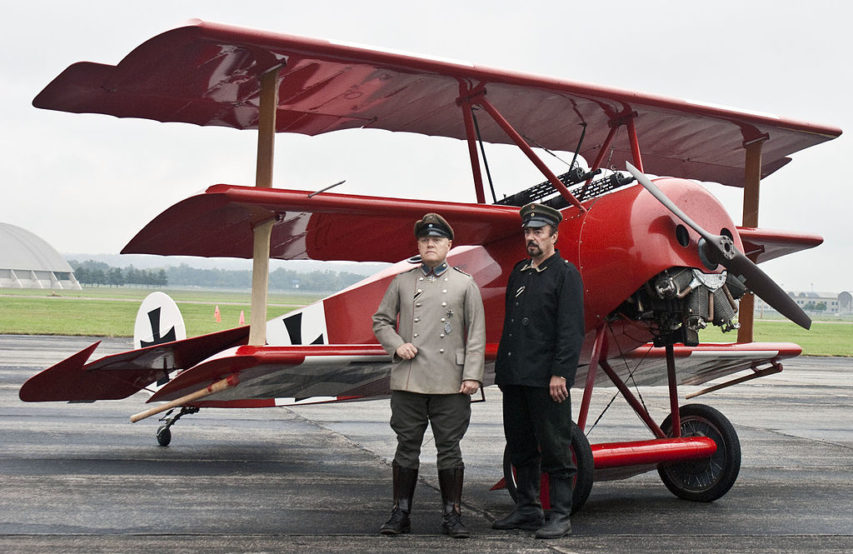Published on 6 Apr 2017
Learn more about Guam in WW1: www.visitguam.com/smscormoranguam/
The Island of Guam was on the other end of the world when the US declared war on Germany in 1917. However, they had been involved in the global conflict for years already. When the Germans lost their colonies in the Pacific, the German merchant raider SMS Cormoran II had no other choice but to seek refuge in the then neutral Arpor Harbour, Guam. For months the German crew around Adalbert Zuckschwerdt stayed on the island and became a kind of sensation. But that all changed on April 6, 1917.
April 7, 2017
The First American Shots Of WW1 – Guam And The Cormoran I THE GREAT WAR Special
The art of Shakespeare … well, actually the art of Munchkin Shakespeare
John Kovalic reflects on the now-complete artwork for Munchkin Shakespeare:
Munchkin Shakespeare is DONE!
At least my part.
Final tally: about 250 cards, bookmarks, covers, etc.
It was, without question, the largest single Munchkin project I’ve ever tackled at one sitting.
Well, several sittings, really. Over about a two-month period.
The final sitting was the best, though. In London at the time, I wandered around Southwark – Shake-dawg’s stomping grounds – and chose the bar at Shakespeare’s Globe to finish the last few drawings.
[…]
Munchkin Shakespeare was a hugely fun project – but it was also hugely huge, thanks to you monsters and all the stretch-goals you hit.
Would more time have been helpful? Yes. But then, that’s always the case. Point being, Munchkin Shakespeare is going to look fantastic. Most of that is due to the Steve Jackson Games Art Department, which always manages to make my silly little scribblings look great. Those folks are amazing.
Also? The cards are hilarious. I mean, truly madcap, green-eyed, bloodstained tremendous. Thanks to Steve Jackson, Andrew Hackard, and many contributors who threw in crazy ideas during a crowdsourcing braintrust info-dump that launched this too, too silly project.
Here are some first-looks at a few of the cards (Insert usual “Art Not Final” etc. things I’m supposed to say here)!
Unintended consequences of “good” policies
Megan McArdle discusses when some otherwise nice-seeming policy changes have not-so-nice unforeseen side effects:
What happens when you suddenly offer parents generous family leave benefits, paid at the expense of the government? You can probably think of dozens of outcomes. But here’s one you might not have been expecting: people die.
That’s the finding of Benjamin Friedrich and Martin Hackmann, in a new working paper at the National Bureau of Economic Research. The culprit? Nurses, who skew female, provide a lot of vital health care, and made heavy use of Denmark’s new paid family leave benefit when it passed in 1994. Since the supply of nurses was limited, and their skills could not easily be replaced, hospital readmissions went up, and more troublingly, mortality spiked among elderly patients in nursing homes.
Advocates of paid parental leave are no doubt bristling at the implication that their favorite benefit might kill people. But that’s not quite the right implication to take away from this paper. What it really highlights is how difficult it is to know how a given policy will turn out. Had officials understood that in advance, they might have taken steps to mitigate the effects — such as training extra nurses beforehand. The problem, in other words, wasn’t necessarily family leave policy, but the limited visibility policymakers have into the outcomes of their plans.
To see why, consider what the paper actually found. When parental leave came along, it reduced the supply of nurses. But that impact wasn’t felt evenly. In hospitals, where doctors make more of the medical decisions, it seems to have been costly to patient health. But in nursing homes, where nursing staff have more power over daily operations, it seems to have made a much bigger difference. Meanwhile, nursing assistants seem to have been little impacted by the change in leave policy; while they were also likely to make generous use of the leave, health-care facilities seem to have had little difficulty replacing them.
Some people build boats as a hobby … this guy built a Fokker Dreidecker I
At The Register, the story of Dr Peter Brueggemann’s quest to build a close replica of the kind of WW1 aircraft made famous by the Red Baron:

World War I Dawn Patrol Rendezvous DAYTON, Ohio — Reenactors stand in front of a Fokker Dr. I during the World War I Dawn Patrol Rendezvous at the National Museum of the U.S. Air Force, 8 August 2009. (U.S. Air Force photo, via Wikimedia)
A German orthopaedic surgeon in Norfolk has spent £70,000 building himself a flyable full-size replica of the Red Baron’s Fokker Triplane.
Dr Peter Brueggemann built the First World War-era aircraft by hand – even though when he started he couldn’t fly, as ITV News reported.
The bright red Fokker Dreidecker I (German for “three-decker”, or triplane) was built to a set of technical drawings prepared by an American aviation fanatic in the 1970s. No original Dr.Is exist, though a number of replicas have been put together during the 20th century.
Dr Brueggemann even acquired the title of baron from the Principality of Sealand, ready for when his Fokker makes its planned first flight this summer.
He told the telly station: “Being a surgeon has certainly helped and I have used surgical equipment like needles and forceps when stitching materials to the ribs of the plane.”
[…]
Fokker copied the original Dr.I design from British company Sopwith. During the early stages of air fighting in WWI, rate of climb was deemed vitally important. As aeronautical science was still in its infancy – aircraft were built from plywood and canvas, while the relatively primitive rotary engines of the day were only capable of around 110hp – the easiest way of increasing the amount of lift available was to add more wings.
First seeing action in early 1917, the Sopwith Triplane was an instant success. However, a captured example shown to Anthony Fokker, prompting German development of their own version. The first pre-production Dr.I was issued to a frontline unit in August 1917 and proved an instant hit. German fighter squadron commander Manfred von Richthofen recommended the Dr.1 be issued to as many frontline units as possible.
Growth Rates Are Crucial
Published on 12 Jan 2016
In the first video in this section on The Wealth of Nations and Economic Growth, you learned a basic fact of economic wealth — that countries can vary widely in standard of living. Specifically, you learned how variations in real GDP per capita can set countries leagues apart from one another.
Today, we’ll continue on that road of differences, and ask yet another question.
How can we explain wealth disparities between countries?
The answer? Growth rates.
And in this video, you’ll learn all about the ins-and-outs of measuring growth rates.
For one, you’ll learn how to visualize growth properly — examining growth in real GDP per capita on a ratio scale.
Then, here comes the fun part: you’ll also take a dive into the growth of the US economy over time. It’s a little bit like time travel. You’ll transport yourself to different periods in the country’s economic history: 1845, 1880, the Roaring Twenties, and much more.
As you transport yourself to those times, you’ll also see how the economies of other countries stack up in comparison. You’ll see why the Indian economy now is like a trip back to the US of 1880. You’ll see why China today is like the America of the Jazz Age. (You’ll even see why living in Italy today is related to a time when Atari was popular in the US!)
In keeping with our theme, though, we won’t just offer you a trip through ages past.
Because by the end of this video, you’ll also have the answer to one vital question: if the US had grown at an even higher rate, where would we be by now?
The magnitude of the answer will surprise you, we’re sure.
But then, that surprise is in the video. So, go on and watch, and we’ll see you on the other side.
QotD: You may not have to be crazy to be President, but it helps
Does Mr. Trump really have serious psychiatric problems as increasing numbers of shrinks are suggesting?
Since in their DSM-5 [PDF] (Diagnostic and Statistical Manual of Mental Disorders, Fifth Edition), the Mental Health Guild has classified just about every possible combination of human emotion and behavior as a psychiatric disorder, they can certainly find Mr. Trump — along with the rest of us — has conditions they would gladly treat but not necessarily cure. For a nice fee, of course.
They suggest he’s grandiose, antisocial, narcissistic, and paranoid etc. And, since an Australian study found that 1 in 5 CEOs are psychopaths, we can probably add that and/or “sociopath” to the list.
And they say he’s deceitful and tells lies, so far, at least 129 of ’em. And counting. Well, DUH! That IS how politicians get elected after all. And most of the folks who manage to get a shot at the position are quite accomplished at it.
Bill Clinton was notable, and his wife is no slouch. Obama was quite slick at it and Dubya & Company told 935 thoroughly documented whoppers to get “us” to attack, kill, maim, and displace hundreds-of-thousands of innocent Iraqi men, women and children. Etc.
So, since as POTUS (President Of The United States), Mr. Trump will almost certainly be responsible for killing, etc. large numbers of innocent folks, being a bit of a sociopath — maybe even a psychopath — will help. And to feel better about it — and possibly avoid PTSD — he can follow previous Presidents and call most of those innocent victims “collateral damage” instead of “murder victims.”
The bottom line is that to serve as president, sociopathy etc. has become helpful and lying is necessary. As Historian Zinn put it, “If governments told the truth, they wouldn’t last very long.”
L. Reichard White, “Is Trump Nuts? Does it Matter?”, Libertarian Enterprise, 2017-03-26.





